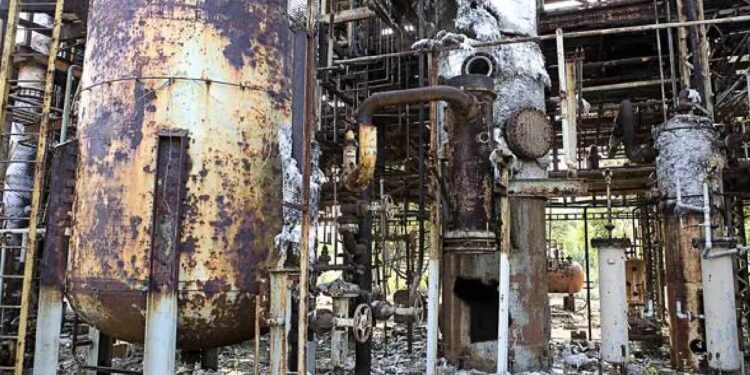Lagatar24 Desk
Bhopal: Forty years after the catastrophic Bhopal gas tragedy, the hazardous waste from the Union Carbide factory remains largely unaddressed. Social activists revealed that 337 metric tonnes of toxic waste still sit in a shed at the defunct plant, despite ₹126 crore being allocated by the central government to Madhya Pradesh for its disposal.
World’s Worst Industrial Disaster
On the fateful night of December 2-3, 1984, a massive leak of methyl isocyanate (MIC) gas from the Union Carbide plant claimed the lives of 5,479 people and severely affected more than five lakh others. Along with the waste, 1.1 million tonnes of contaminated soil around the plant continue to pollute local water sources, endangering nearby communities.
Judicial and Administrative Delays
ND Jayaprakash, co-convener of the Bhopal Gas Peedith Sangharsha Sahayog Samiti, highlighted delays in addressing the issue. He noted that the Madhya Pradesh High Court had reprimanded the state government in September for failing to begin waste disposal despite receiving funds in March. The hearing on a writ petition related to the tragedy is set to resume.
Failed Attempts at Waste Disposal
Rachna Dhingra from the Bhopal Group for Information & Action revealed that earlier efforts to incinerate waste have made minimal progress. In 2005, only 345 metric tonnes of waste were collected, which constitutes less than 0.05% of the total hazardous waste at the site.
In 2015, the Central Pollution Control Board (CPCB) incinerated 10 tonnes of waste on a trial basis in Pithampur, recommending further disposal. However, opposition from the Madhya Pradesh government citing pollution risks to the Yashwant Sagar Dam stalled progress.
International Proposal Rejected
A German firm, Deutsche Gesellschaft für Internationale Zusammenarbeit (GIZ), had offered to incinerate 345 tonnes of waste in Hamburg for ₹54 crore. Public opposition in Germany led to the withdrawal of this proposal. Subsequently, the MP government announced plans to incinerate the waste locally at a cost of ₹126 crore, a figure activists question as excessive.
Call for Action
Activists are urging the use of advanced closed-loop incinerators to safely dispose of the waste or compelling Dow Chemicals, Union Carbide’s successor, to transport and process the hazardous material in the United States.
This prolonged inaction continues to endanger the health of nearby communities, underscoring the pressing need for swift and transparent measures.







